








Airlines, Airports and Airliners News 21 to 27 September 2020 COMAIR BUSINESS RESCUE PLAN ADOPTED 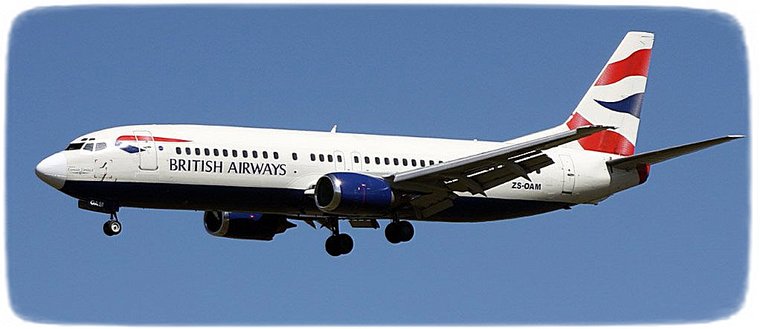 In terms of the business rescue plan the preferred investment consortium, comprising a number of former Comair board members and executives, will invest fresh equity of R500 million in return for a 99% shareholding once the suspensive conditions set out the business rescue plan have been met. Up to 15% of this will be allocated to a suitable BBBEEE partner within 12 months. During the next two months, R100 millions of this will be paid in two equal tranches as secured post-commencement finance. Additional funding from lenders of R1.4 billion is required and will comprise R600 million in new debt. The remaining R800 million will be deferred debt, with capital payments deferred for a year and interest for six months. Comair will be de-listed from the JSE and a new board constituted. The turnaround plan will focus on reducing operating costs and growing ancillary revenue. This will see the current workforce reduced from about 2 200 employees to 1 800 through voluntary retrenchment and early retirement programmes, as well as the Section 189 retrenchment process that began prior to business rescue continuing. It is intended that the fleet be restored to 25 aircraft, including two Boeing Max aircraft. The aircraft will gradually return to service from December with a seven-month ramp-up period until June 2021. Existing relationships will be maintained with British Airways, Discovery Vitality, Slow Lounges and Boeing. Comair CEO, Wrenelle Stander, welcomed the adoption of the business rescue plan which should save 1 800 jobs. She said entering business rescue had been a difficult decision, particularly as good progress was being made to fix the financial situation, however, the extraordinary circumstances of the lockdown meant the company was unable to earn any revenue. "When the lockdown happened, business rescue became the only responsible course of action. Had we not made that tough decision Comair would not have flown again. There may still be a few bumps on the way ahead, however, now that the plan is adopted, at last clearer skies are now in sight." Richard Ferguson, one of the business rescue practitioners, says that a number of suspensive conditions in the plan must still be met. If this does not happen, then the company will be wound down in a structured manner to achieve the best return for creditors. "That doesn't diminish what an important moment this is for Comair, its employees, the investors and the South African flying public. After nearly six months of intensive work and negotiation in a fraught economic environment, it is an exceptionally positive result." Glenn Orsmond, representing the Comair Rescue Consortium, says Comair plans to recommence air services in December with both the British Airways and Kulula brands. "We are thankful for the support of the creditors and shareholders and humbled by the overwhelming support from the Comair staff. We are excited at the prospect of rescuing Comair and restoring it to its former position as the pre-eminent airline in South Africa." Should everything go according to plan the business rescue process should be concluded by 31 March 2021, after which Comair will continue to operate as a sustainable business. ETHIOPIAN TO RESUME FLIGHT TO JOHANNESBURG, CAPE TOWN 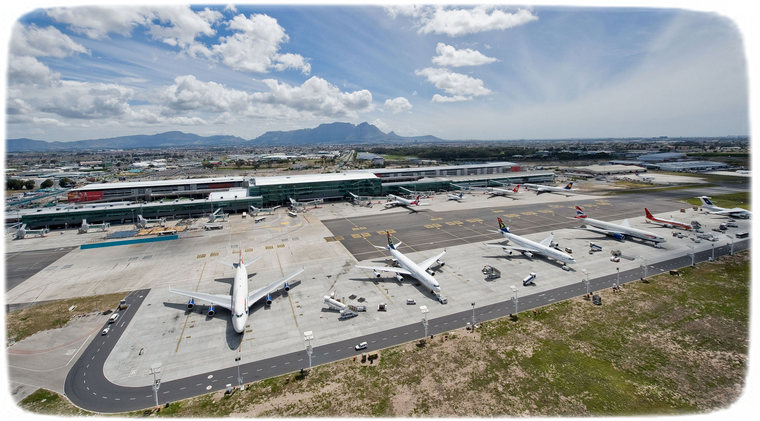 With the easing of travel restrictions across the globe, Ethiopian Airlines Group, the largest aviation group in Africa, has continued relaunching international flights enforcing extra precautionary measures to ensure the health and safety of passengers and staff. As part of the resumption scheme, Ethiopian is pleased to announce that it will restart scheduled commercial flights to Johannesburg and Cape Town as of 01 October 2020. As countries continue to open their borders and relax travel restrictions, Ethiopian is ready to increase frequencies to accommodate the demand by focusing on the wellbeing of customers and staff. MONTREAL INTERNATIONAL ACHIEVES GLOBAL HEALTH ACCREDITATION 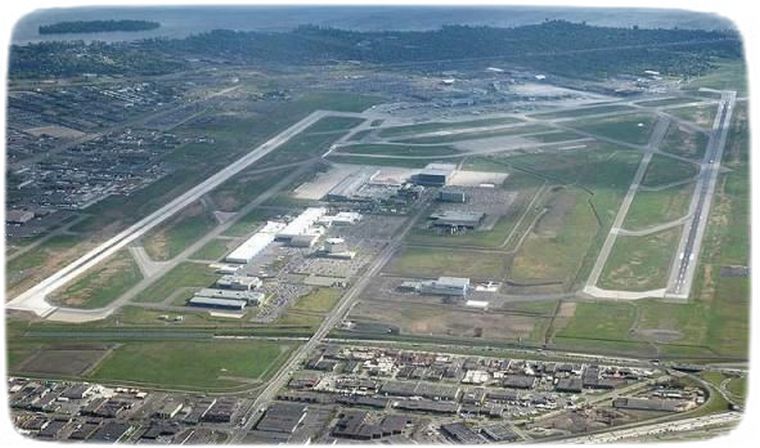 The AHA is also consistent with the recommendations and industry priorities put forward by Airport Council International - North America's Airport Industry Recovery Advisory Panel in June 2020. As the report recommends, the restart and recovery of the aviation sector will require a consistent and harmonized approach with clear industry standards and good practices. Adopting the Airport Health Accreditation program is a concrete step that airports can take to reaffirm their commitment to health and safety. ACI World Director General Luis Felipe de Oliveira stated; "We commend and support the efforts of Canadian airports working with public health officials and air carrier partners to explore ways in which testing and improved contact tracing can be deployed to further mitigate the spread of COVID-19 and restore confidence in air travel. We, as an industry, must continue to encourage government to adopt risk-based and harmonized approaches to health and safety. This is integral to rebuilding air services, in Canada and globally." AIRBUS REVEALS NEW ZERO-EMISSION CONCEPT AIRCRAFT  All of these concepts rely on hydrogen as a primary power source - an option which Airbus believes holds exceptional promise as a clean aviation fuel and is likely to be a solution for aerospace and many other industries to meet their climate-neutral targets. "This is a historic moment for the commercial aviation sector as a whole and we intend to play a leading role in the most important transition this industry has ever seen. The concepts we unveil today offer the world a glimpse of our ambition to drive a bold vision for the future of zero-emission flight," said Guillaume Faury, Airbus CEO. "I strongly believe that the use of hydrogen - both in synthetic fuels and as a primary power source for commercial aircraft - has the potential to significantly reduce aviation's climate impact." The three concepts - all codenamed "ZEROe" - for a first climate neutral zero-emission commercial aircraft include: A turbofan design (120-200 passengers) with a range of 2,000+ nautical miles, capable of operating trans continentally and powered by a modified gas-turbine engine running on hydrogen, rather than jet fuel, through combustion. The liquid hydrogen will be stored and distributed via tanks located behind the rear pressure bulkhead. A turboprop design (up to 100 passengers) using a turboprop engine instead of a turbofan and also powered by hydrogen combustion in modified gas-turbine engines, which would be capable of traveling more than 1,000 nautical miles, making it a perfect option for short- haul trips. A "blended-wing body" design (up to 200 passengers) concepts in which the wings merge with the main body of the aircraft with a range similar to that of the turbofan concept. The exceptionally wide fuselage opens up multiple options for hydrogen storage and distribution, and for cabin layout. "These concepts will help us explore and mature the design and layout of the world's first climate-neutral, zero-emission commercial aircraft, which we aim to put into service by 2035," said Guillaume Faury. "The transition to hydrogen, as the primary power source for these concept planes, will require decisive action from the entire aviation ecosystem. Together with the support from government and industrial partners we can rise up to this challenge to scale-up renewable energy and hydrogen for the sustainable future of the aviation industry." In order to tackle these challenges, airports will require significant hydrogen transport and refuelling infrastructure to meet the needs of day-to-day operations. Support from governments will be key to meet these ambitious objectives with increased funding for research & technology, digitalisation, and mechanisms that encourage the use of sustainable fuels and the renewal of aircraft fleets to allow airlines to retire older, less environmentally friendly aircraft earlier. IATA COMMENT ON STUDIES REGARDING ONBOARD TRANSMISSION OF COVID-19 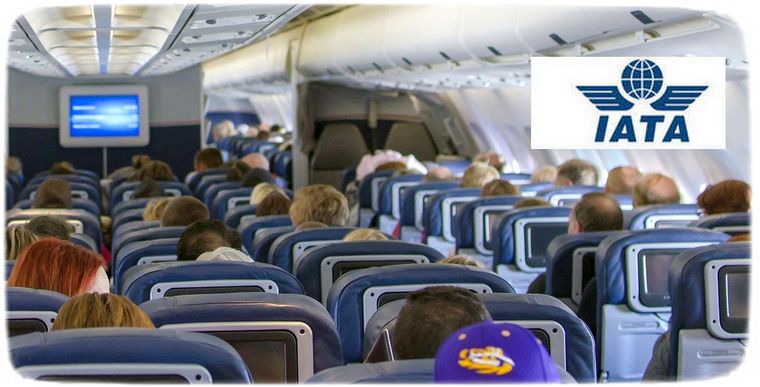 There have been millions of flights since the start of the COVID-19 outbreak. And there are very few reported incidents where onboard transmission is suspected. We believe that the data is telling us that the risk of onboard transmission of the virus is low when compared with other public indoor environments, such as trains, buses, restaurants and workplaces. There are published examples which indicate a much higher risk in these environments. Aircraft benefit from very high air exchange rates and HEPA filters which filter more than 99.99% of all particles including viruses. Furthermore, the two flights studied took place in March and a lot has taken place since. Most notably, face masks and face coverings are now common practice during flights and other environments where social distancing is not possible. And in June, the ICAO "Take-off" guidelines for safe operations during the COVID-19 crisis was agreed and is being implemented by governments. While the risk of transmission on an aircraft is low, passengers can take additional precautions to further lower the risk. Following guidance to wear a mask or face covering provides significant protection to all onboard. Passengers are also encouraged to practice good hand hygiene - washing hands regularly with soap or an alcohol-based hand sanitizer and avoiding touching the eyes, nose or mouth, especially after contact with commonly touched surfaces. We continue to keep an open mind and a close watch on emerging data and medical literature.  Boeing [NYSE: BA] has announced a firm order from an unidentified customer for two 737-800 Boeing Converted Freighters (BCF), as well as agreements to open additional conversion lines in Guangzhou, China and Singapore to meet strong market demand. Based on the popular Next-Generation 737, the 737-800BCF offers operators newer technology, lower fuel consumption and higher reliability than other standard-body freighters. Primarily used to carry express cargo on domestic or short-haul routes, the airplane is capable of carrying up to 23.9 tonnes (52,800 pounds) and flying up to 2,000 nautical miles (3,750 kilometres). The 737-800BCF now has 134 orders and commitments. "The freighter conversion program is an excellent way to double the life of an airplane and provide operators with an economical way to replace less efficient freighters," said Ihssane Mounir, senior vice president of Commercial Sales and Marketing for Boeing. "By working with our partners to add freighter conversion capacity, we look forward to meeting the strong demand in this market segment and helping our customers scale their operations." The world's most efficient freighter in its class, the Boeing 767 freighter family offers the lowest operating costs per trip and allows airlines to develop new opportunities in the long-haul, regional and feeder markets. The 767-300BCF has virtually the same cargo capability as the 767-300F production freighter with up to 56.5 tonnes (124,600 pounds) of payload and flying up to 3,350 nautical miles (6,190 kilometres). The Boeing freighter family, which includes production and converted freighters, provides more than 90 percent of the world's freighter capacity, offering an unmatched selection of capacity and capability with superior economics in every freighter size. 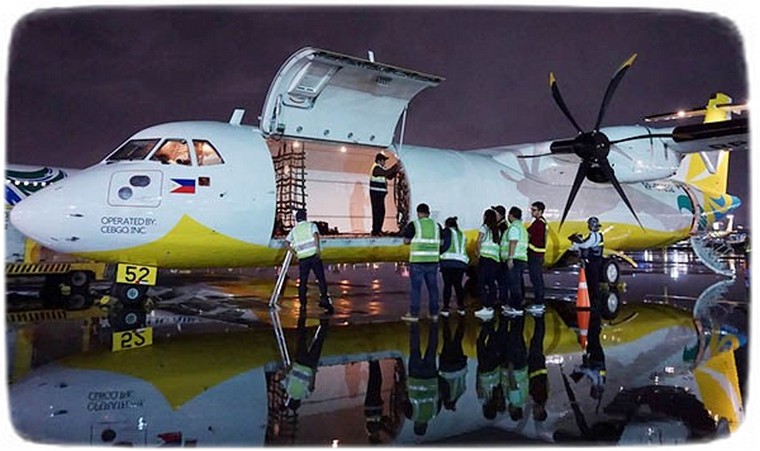 The first delivery of this aircraft will be to FedEx Express, the world's largest cargo airline and express transportation company, who placed a firm order for 30 aircraft, plus 20 options, in November 2017. The arrival of this new freighter further cements ATR's leadership position in the regional freighter market where ATR cargo aircraft already represent a third of the in-service regional freighter fleet. The brand new straight-from-factory cargo aircraft will offer a number of unique advantages to operators. With a Large Cargo Door included as part of the original design and the same wide cross section as all ATR aircraft, the freighter will be able to accommodate bulk cargo and industry-standard pallets and containers. The aircraft will also provide operators with the very latest avionics suite, which can be continuously upgraded. This effectively futureproofs the -600F's state-of-the-art cockpit by allowing cargo airlines to take benefit from future innovations, which will further enhance the aircraft's efficiency. 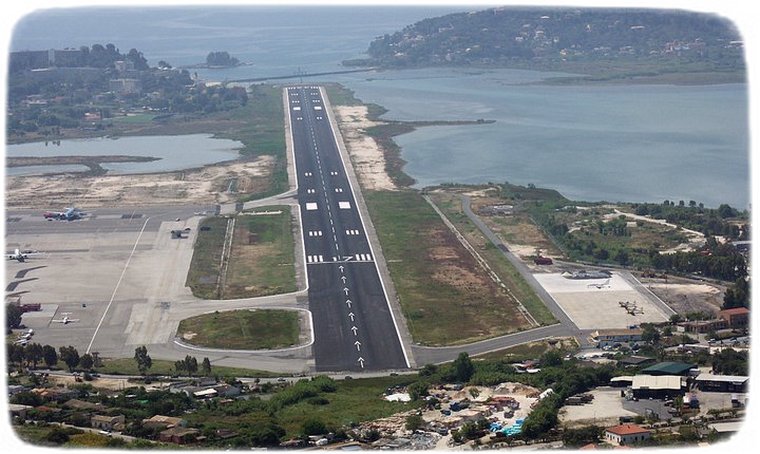 Lufthansa is consistently expanding its offering of flights to tourist and leisure destinations from Frankfurt. During next year's summer Season in 202, 15 new sunny destinations, which are highly attractive for holidaymakers, are now available for booking. The focus is on Greece (Corfu, Chania/Crete, Mykonos, Kos, Kavala/Thrace and Preveza/Peloponnese). Other attractive destinations in the program are in Spain (Jerez de la Frontera, Canary Islands and Tenerife will be continued from winter), Egypt (Hurghada), Cyprus (Paphos), Croatia (Rijeka), Italy (Lamezia Terme), Tunisia (Djerba) and Bulgaria (Varna). The departure and arrival times of the new destinations are ideal for holidaymakers: Departures from Frankfurt were scheduled for the early morning hours and return flights to the Frankfurt Main metropolis in the evening. "Never before have we included so many new vacation destinations in our program. This is our response to the wishes of our customers. The demand for vacation and leisure trips is recovering much faster than that for business trips. With Lufthansa, we already have a great and longstanding deal of expertise in tourist offers and we are now resolutely expanding this as part of our strategy," says Harry Hohmeister, member of the Executive Board of Deutsche Lufthansa AG. By deploying up to five additional aircraft, the company will in future offer around 70 weekly connections to 29 purely tourist destinations, 15 more than in the same period last year. Lufthansa's goal is to actively shape the future of tourism. This was a strategic focus even before the coronavirus pandemic. Since the beginning of July 2019, Lufthansa has been offering numerous additional tourist destinations. 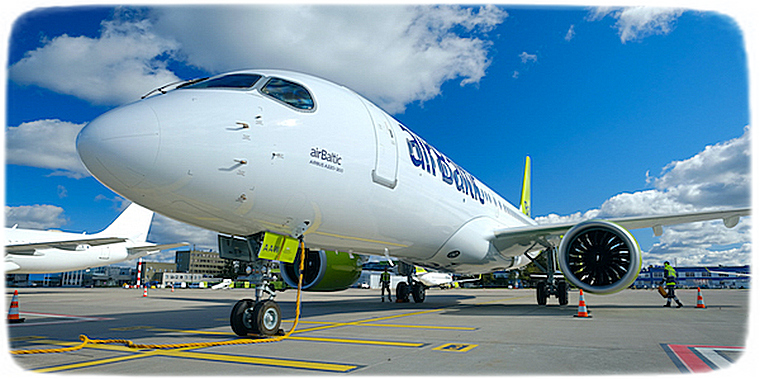 On September 20, 2020 airBaltic welcomed in Riga its 23rd Airbus A220-300 jet, registered as YL-AAW. The 23rd aircraft is one of the 50 Airbus A220-300 airBaltic has ordered. In addition, airBaltic holds 30 options for the same aircraft type. By the end of 2020 airBaltic plans to have a total of 25 Airbus A220-300 jets in its fleet. Martin Gauss, CEO of airBaltic: "The current crisis enabled us to focus on the Airbus A220-300 as the only aircraft type airBaltic will fly in the future. With our aircraft choice the focus is on sustainability that is an advantage to come out of the crisis." Since May 2020, airBaltic operates all of its flights with a single aircraft type - Airbus A220-300, thus minimizing the complexity and benefiting from the additional efficiency provided by the aircraft. The Airbus A220-300 has performed beyond the company's expectations, delivering better overall performance, fuel efficiency and convenience for both passengers and the staff. This aircraft offers an excellent flying experience with such benefits for passengers as wider seats, larger windows, more hand luggage space in the cabin, improved lavatories and much more. The new aircraft is also considerably quieter - with a four times smaller noise footprint. Moreover, at the moment, it is the greenest commercial aircraft in the world, as it is the first aircraft to have a transparent declaration of the life-cycle environmental impact, helping to reduce CO2 and NOX emissions by 20% and 50% respectively. 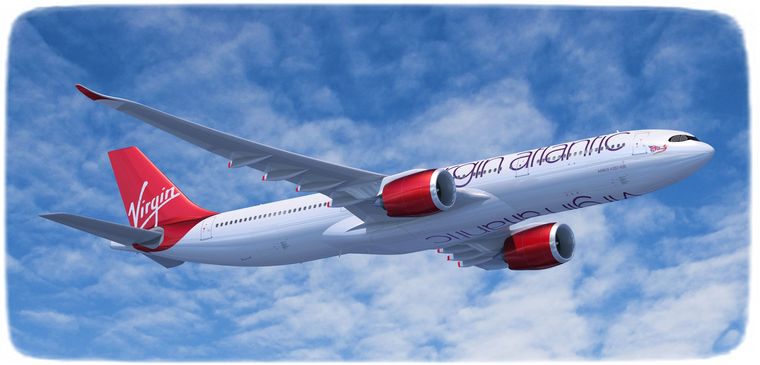 Flying three new routes from London Heathrow to Lahore, London Heathrow to Islamabad, as well as from Manchester to Islamabad, subject to applicable regulatory approvals; these new services will operate on one of Virgin Atlantic's newest, most fuel-efficient aircraft, the 787-9 boasting 31 Upper Class suites, 35 Premium and 192 Economy seats. These new services will open up over 290,000 seats between the UK and Pakistan annually while also offering seamless, speedy connections and a consistent long-haul onboard experience for customers travelling from destinations throughout North America, including New York JFK, Los Angeles, Washington, Boston and San Francisco via London Heathrow onwards to Pakistan. Connections from European destinations will also be available through codeshare and interline partners. As well as flying customers, Virgin Atlantic will offer a fast, efficient cargo service presenting new opportunities for companies looking to export and import goods such as fresh produce and textiles between prime markets in the UK and US, and Pakistan. AIR CANADA TO MAKE COMPLIMENTARY COVID-19 INSURANCE COVERAGE AVAILABLE TO INTERNATIONAL TRAVELLERS  "At Air Canada, we know people have personal, family and business reasons to travel. To give them greater confidence as they do so, we have engaged Manulife to offer all Canadian residents complimentary COVID-19 emergency medical & quarantine insurance when they book round-trip flights for travel outside of Canada. Combined with our industry leading airport and onboard biosafety protocols, including Air Canada CleanCare+ and our flexible rebooking policies, customers can be assured that when they book and travel with Air Canada their safety and well-being is our top priority," said Lucie Guillemette, Executive Vice President and Chief Commercial Officer at Air Canada. The Manulife COVID-19 Emergency Medical Certificate of Insurance (the "Plan") is available for new international, round-trip bookings made in Canada between September 17 and October 31, 2020, inclusive, for travel completed by April 12, 2021. If, when abroad, customers test positive for COVID-19, the Plan will provide eligible customers coverage that includes: Up to CDN $200,000 per insured for COVID-19 treatment medical expenses. Up to CDN $150 per person per day for quarantine costs (meals + accommodation); Up to CDN $300 per family per day up to a maximum of 14 days. Up to CDN $500 for expenses related to return home if the advisory from the Canadian government goes from Level 3 to Level 4 while at destination. The Plan is available to all Canadian residents, subject to eligibility requirements, and is underwritten by The Manufacturers Life Insurance Company ("Manulife"), Canada's largest provider of travel insurance. It is the most extensive geographical coverage included by a Canadian airline for Canadian residents, covering every international destination Air Canada serves. Air Canada also recently announced that customers booking with Air Canada Vacations will be offered COVID-19 Coverage and Assistance Plan provided by Allianz at no additional cost designed to cover emergency medical and quarantine expenses if COVID-19 is contracted while travelling. It is available to all eligible customers who book an Air Canada Vacations package for travel by April 30, 2021 to eligible destinations. For details please see aircanadavacations.com. Air Canada has been at the forefront of the airline industry in responding to COVID-19, including being among the first carriers globally to require customer face coverings onboard and the first airline in the Americas to take customers' temperatures prior to boarding. It has introduced a comprehensive program, Air Canada CleanCare+, to apply industry leading biosafety measures at each stage of the journey. As well, to give customers flexibility, it has extended its goodwill policy so that new bookings made up to December 31, 2020 can be changed without fees for original travel up to December 31, 2021. PLEASE GO TO www.youtube.com/channel/UCCuRVZAGodT6sztTeXBGeMw and subscribe to our YouTube channel  |
                  |
 |
 |

Copyright © Pilot's Post PTY Ltd
The information, views and opinions by the authors contributing to Pilot's Post are not necessarily those of the editor or other writers at Pilot's Post.